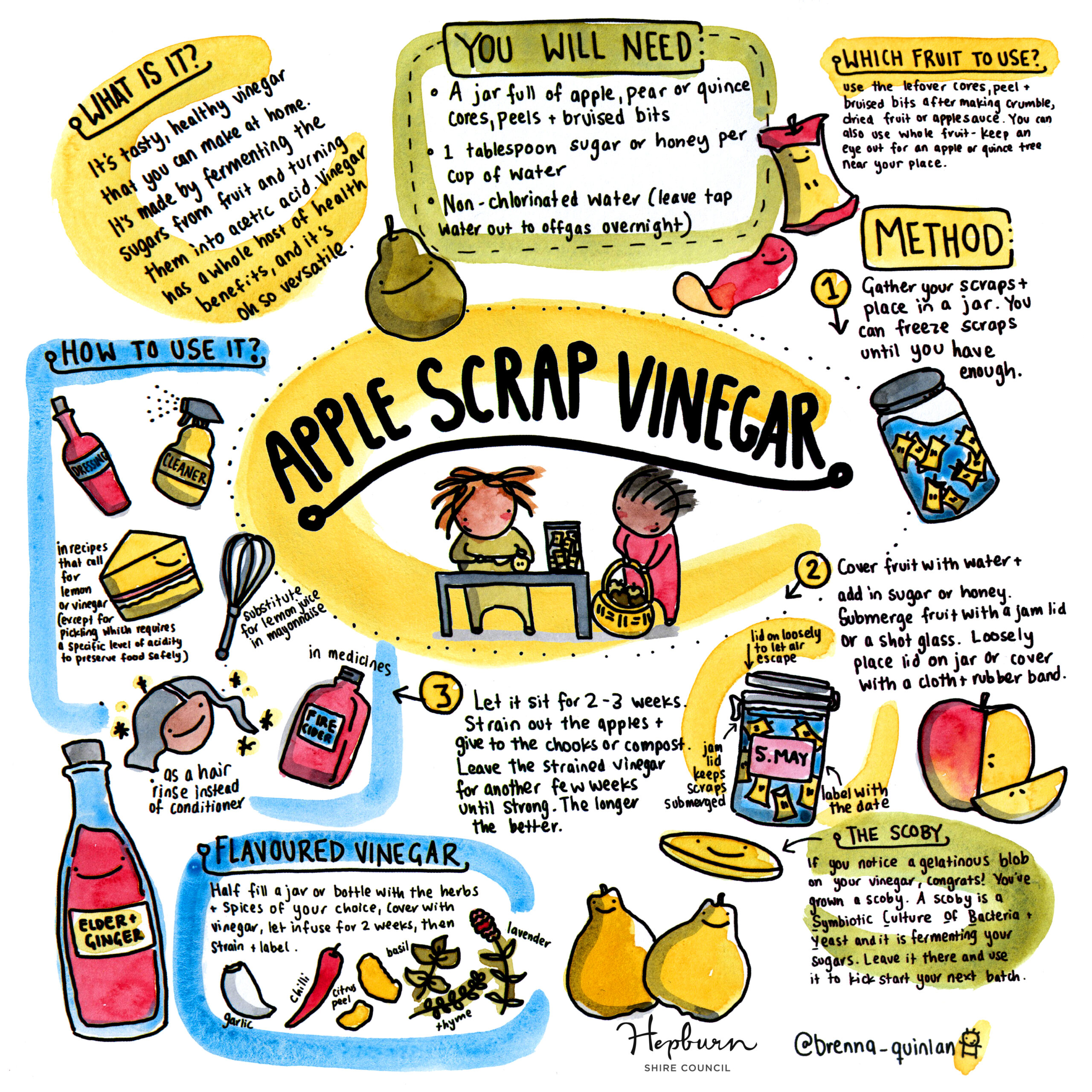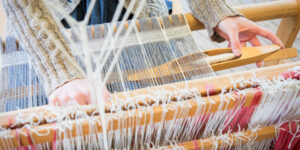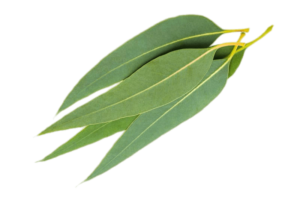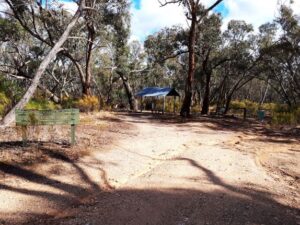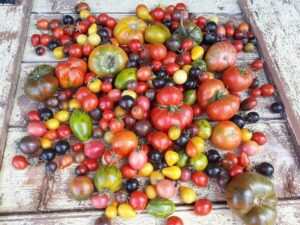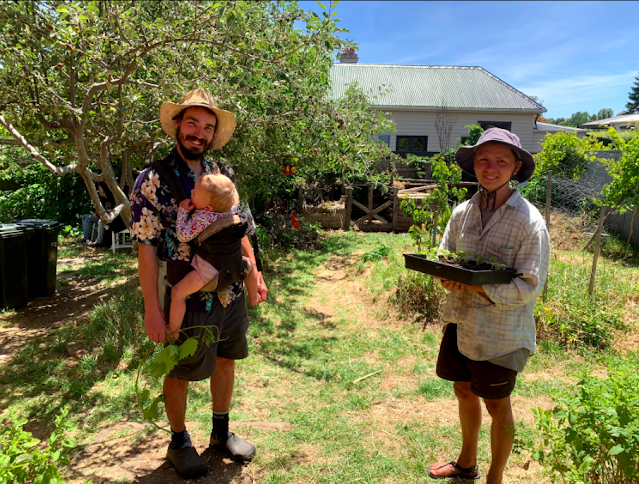16. Rivers Storytelling Program- Northern Victoria
This Environment Victoria free program is based on building the capacity of communities and individuals to tell effective stories that influence change for positive environmental outcomes for our rivers. Telling local stories helps build understanding and is a useful platform for action and practice change.
Over the next few months, Environment Victoria will be bringing people together from across northern Victoria for a comprehensive training program to tell stories that are emotionally compelling and get media attention.
We need to tell the stories of our communities, which are bearing the burden of change. Local stories help build understanding and galvanise people who want to take action.
The training sessions will be held monthly. You can attend individual sessions, or commit to the whole program. Participants will supported with coaching, a list of media contacts in your area and feedback for telling your own story.
At the end of the program, you’ll have published an opinion piece, media story or social media video and you’ll be connected to a new network of river storytellers in your area.
For further information or to register your interest, visit the Environment Victoria website – click here
Posted by Connecting Country 20/1/ 21 (https://connectingcountry.org.au/rivers-storytelling-with-environment-victoria)
17. Castlemaine Weekly Farmers Market and MaLets program
When: Weekly– Every Wednesday afternoon- 3.30 -6pm; Monthly – first Sunday of the month, 9am -1pm
Where: Maxi IGA Carpark and surrounds of Visitor Information Centre, between Forest Street and Mostyn Street
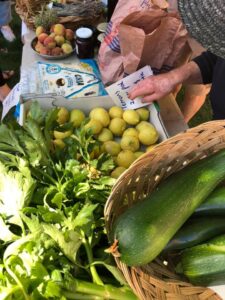
Fresh, local, seasonal food from vegetable, fruit and milk producers at Harcourt Organic Farming Cooperative, along with other local farmers.
Swapping produce: There’s also the MaLets table for those who want to swap home grown and home made produce. Sign up and away you go! And you can go into debt or credit. HEAPS of fantastic stuff – seasonal fresh fruit & fresh vegetables, including tomatoes, zucchinis, cucumbers, other salad items plus pears, plums, nectarines, apples, grapefruit, lemons and eggs. When’s there’s abundance there’s also cooked/poached plums, peaches, pears and tomatoes, so come along to the market and let us help each other out distributing seasonal food, fresh & cooked.
For more information re MaLets: malets.editor@gmail.com
For more information re market: https://castlemainefarmersmarket.org/
18. Castlemaine State Festival 2021

Castlemaine’s biennial festival is on again from March 18th to April 4th, 2021. There’s music, theatre, talks, writers, performance, artists’ open studio’s, circus and much more. There are free events, indoor and outdoor venues, as well as family friendly events.
For more information and program go to: https://castlemainefestival.com.au/
19. Make a Change- Initiatives that make a difference- Bendigo
Make a Change/Let’s pivot, is based in Bendigo and works with local people to create positive change. They are running eight sessions delivered on Wednesdays 10.30am – 12pm from 3rd February to 24th March. These sessions are free of charge and are friendly, inclusive, facilitated discussions for not-for-profits, community groups, leaders, and anyone who wants to be more effective or make a positive impact!

Designed for people to connect, explore, and enjoy the topics provided, they are particularly relevant if you are looking for support to:
- adapt services and programs
- implement new projects
- change approaches and plans
- build resilience and strengthen community connections
- increase community involvement
- improve online delivery
- gain inspiration and ideas
- be part of an encouraging network
- or simply tune in to what others are doing
Included is an invitation to attend an optional 15 min session prior to the start of each discussion to cover any tech questions you may have in using Zoom or other online platforms. You will also receive all the agendas as templates so you can have these conversations with your own groups and communities later.
To book or join the sessions: https://jumpleads.us5.list-manage.com/
Movers and Shakers: Make a Change have hosted interviews with local and national thought leaders and changemakers. These interviews have provided food for thought and stimulus for Let’s Pivot participants and our broader community, including:
Ian McBurney Amanda Logie Craig Lapsley
More interviews to come this month and next.Topics include online fundraising, locally led solutions,
co-working in rural towns and more. For more information: https://makeachange.org.au/
20. Seed Libraries – Hepburn and Castlemaine

At the recent working bee Castlemaine Seed Library received donations of rainbow chard, red cos lettuce, mixed lettuce, china rose/daikon radish cross, edible chrysanthemums, parsley, coriander, purple sprouting broccoli, celery, chervil, carrot, ruby red chard, garlic chives, Wasabi mustard greens, rocket, kohl-rabi and honey peas.
For the bees and other pollinators we received dark and light pink hollyhocks to plant in spring, mixed cornflowers, frilled daisy, striped marigold and pink scabiosa.
Next Seed Library working bee- There are lots of seeds to winnow and pack. All welcome.
When: March 4th 11am.
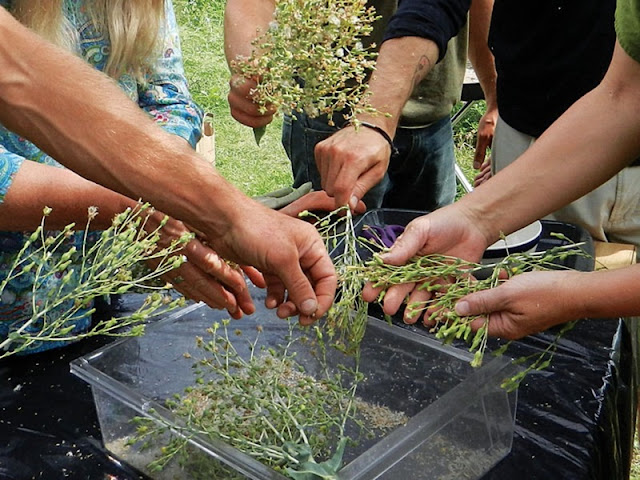
Where: Library foyer for Covid-safe spacing.
If you can’t get enough gardening and want to join a friendly group, the Castlemaine Community House garden weekly working bee is on Thursday mornings, 9.30 – 1pm.
Hepburn Seed Savers
Hepburn Seed Savers meet every third Sunday afternoon from 2pm at Glenlyon Hall, starting back this year on February 21st. Come along and help pack and swap seeds and meet fellow like- minded seed lovers and gardeners.
Our local living seed library is at Hepburn Wholefoods, open Mon 9:30-11:30, Tues 5:00-7:00pm, Wed 2:00-4:00pm, and Thursday 3-5pm
For more information: https://www.facebook.com/Seedkeepers/
21. Forest and Free- Community Bush School, Daylesford
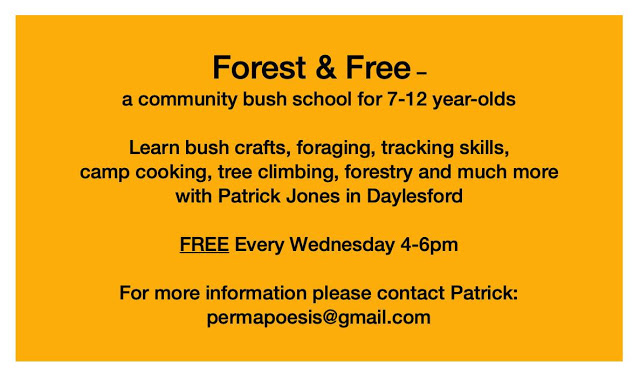
22. Vocal Nosh in Newstead
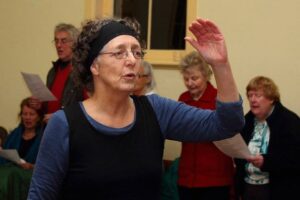
Songs to keep our dreams afloat”
23. Daylesford Community Food Gardens
Daylesford has several community food gardens where free organic, liberated food is grown for all to share. Monthly working bees are held on the second Saturday of each month from 10am – 12pm at the library garden.
24. Wild Fennel: Hepburn Herbal Group
Wild Fennel is back. Join us for the first Wild Fennel of the year.
When : Saturday February 20th from 9.30am – 12.30pm
Where: Daylesford skate-park community garden.
Bring a rug to sit on, a thermos of your favourite herbal tea + cup and a burning herbal question to ask facilitator Rosie Cooper.
25. Land Share Central Victoria
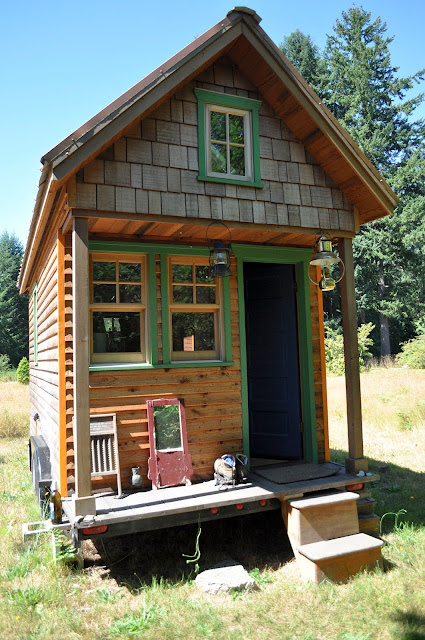
26. Democratic Renewal in Hepburn Shire
- flags to the community upcoming council issues, e.g. around policy, planning, local laws;
- collects information from the community about their current issues and barriers, then formally shares that information with the wider community and the shire’s councillors;
- promotes and trials active democracy methods within the shire, i.e. ways of ensuring public participation in council decision making.
27. Bendigo Villages launched
It’s time to reconnect with neighbours and communities across town to create an epidemic of belonging. It’s time to share stuff and skills with neighbours and reduce consumption. It’s time we had our own local cooperative platform, with no ads, no bots, no billionaires and no one selling our private data. On Villages, you’re in control. Of who you connect with, what you share and what you see.
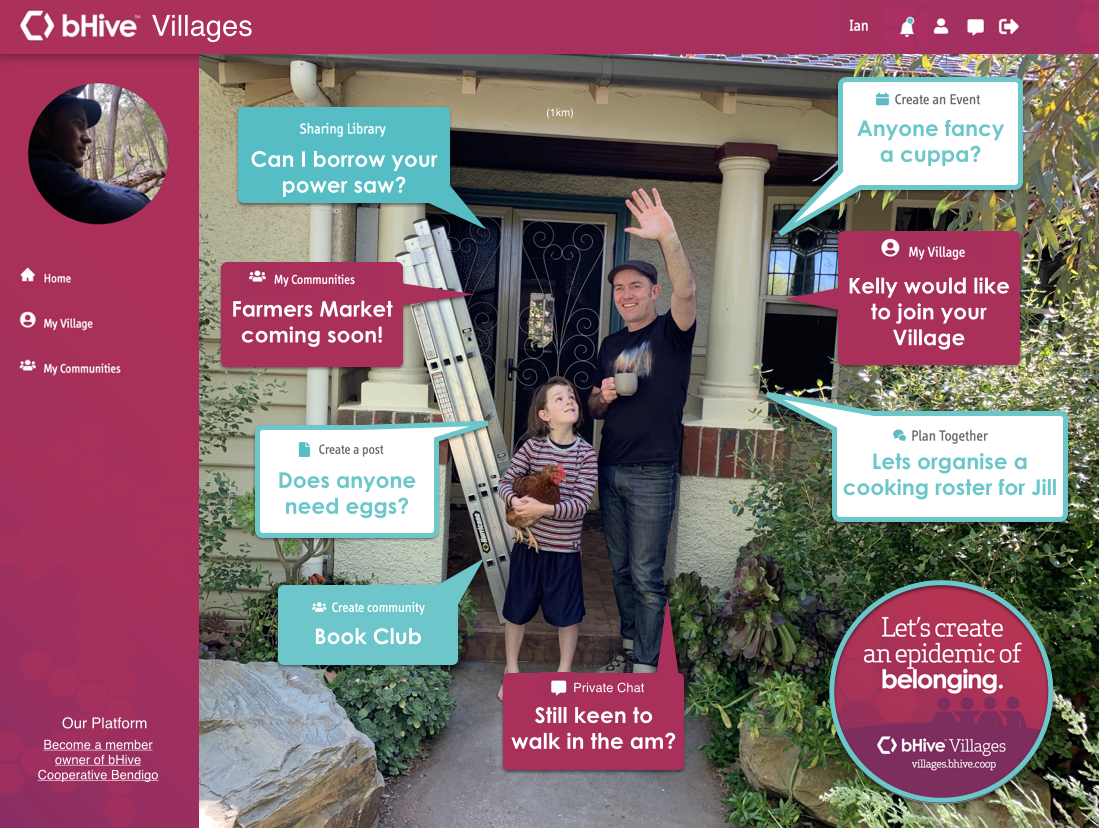
Vision: We own our local digital sharing economy together. First mission: Create a digital platform that allows Bendigo people to create, own and run sharing enterprises, providing access to shared local goods and services.
28. Community Supported Bakery- Two Fold Bakehouse
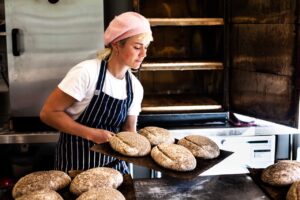
29. Explore, be inspired and have your say in Mt Alexander shire
Have your say on our region’s future: A collection of local groups are looking for community input on a plan for our shire’s future. Climate change will bring many challenges to our region which is already dry and prone to bushfires. We want to plan how our community can continue to thrive into the future and build our resilience to the climate shocks that are anticipated.
Last year, with significant input from the community, Mount Alexander Shire Council declared a Climate Emergency. Since then, The Mount Alexander Sustainability Group (MASG), Council, The Hub Foundation, Renew Consulting, Nalderun, Central Vic Greenhouse Alliance, Castlemaine Institute and many other local groups have been working together to create a plan for the Mount Alexander Shire. Reaching zero net (carbon) emissions (Z-NET) by 2030 is one aspiration, the other is to take actions that build local resilience as we adapt to the impacts of climate change.
The aim is for many people from the Mount Alexander Shire to co-create this community transition plan. To this end, the collective have set up an online platform for people to introduce what is important to them and share ideas. Building our collaborative capacity and harnessing the wisdom within this community is a critical aspect of the way forward.
There are three main forums for discussion on the site covering; vision, concerns and ideas. Questions posed include: What does a future thriving future look like? What are your concerns for the future? What are your big (and little) ideas? You don’t have to be an expert; you just need a willingness to be part of envisioning our future.
Any resident of the Mount Alexander Shire can register on OurSay and join the discussions. You can see what other people are talking about and vote for the ideas you think are good, or suggest changes. The site will be open until March 2021 at which time the next phase of sorting and decision making will be set into motion.
“The OurSay site is an ideal hub for discussions on reducing carbon emissions and other local climate change opportunities and challenges. What I like best about it is that any of us can read and post ideas and proposals there 24/7. It allows for open and vibrant engagement with others so we can collaboratively plan on making our future sustainable.” Anitra Nelson said, a local eco-housing enthusiast and one of the early users of the site.
Go to: https://oursay.org/znetmountalexandershire
(Thanks to Alison Hanley at MASG for this posting)
30. Hepburn Wholefoods
ORGANIC BULK WHOLEFOODS FOR THE DAYLESFORD REGION

Hepburn Wholefoods Collective is a not-for-profit community group which aims to support a vibrant and secure community food system. We sell wholefoods in the Daylesford and Hepburn area to provide a connection between growers and their community.
Our stocked goods are sourced from the most local farms we can buy from, and our preference is to buy organic and biodynamic food straight from them.
Community members pay an annual fee and then bring their own containers to stock up their pantry. The shop is staffed by volunteers and is usually open four days a week for two hours at a time.
31. Tiny house update in Mt Alexander shire
A permit for using a ‘tiny house’ as a residence in Mount Alexander Shire (MAS) can be obtained but there are certain limits and conditions. A well-fitted and multi-functional off-grid tiny house is likely to be the simplest type to succeed in getting a permit.
Temporary use: The tiny house cannot be established on a vacant lot unless there is a another dwelling with a permit being constructed on site. In this instance, the tiny house will require a permit prior to or within a few weeks of being positioned. The permit will be issued according to clauses in the Local Law pertaining to caravans and similar for temporary use by the builder or future resident. This permit will be for six months with the option of an extension every six months up to two years provided the primary dwelling is still under construction.
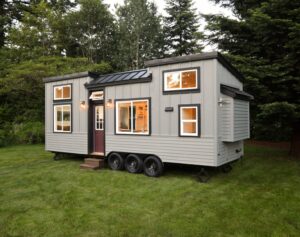
Permanent residence: A permit for a tiny house to be used as a permanent residence requires the tiny house to be located on a site with a pre-existing primary dwelling but no secondary dwelling. The fact that it is a small dwelling on wheels or stumped is of little consequence. As such the tiny house will be considered for a permit under provisions and consultation processes for a secondary dwelling.
These provisions are many and various. For instance, on a town lot the siting and type of tiny house will need to fit into Residential Development standards (ResCode) design, zoning, planning and building regulations, including overlays. In a rural area the applicant will need to show that the tiny house will not impinge on agricultural production. Many applicants will need to ensure that the dwelling is made of appropriate materials and sited in accord with Bushfire Attack Level (BAL) requirements in cases of a bushfire overlay. The regional water authority will need to approve the water collection, use and sanitation utilities. Neighbours will be given an opportunity to object to the permit being approved.
Prospective applicants can arrange a pre-application meeting with a MAS statutory planner to discuss such details. An application might take up to sixty days to be approved (or not, as the case might be), unless delayed for instance in processing by the local water authority.
In October 2020 the MAS charge for making an application for a permit for a tiny house/secondary dwelling worth up to $100,000 was $1147.80.
For more information: https://www.facebook.com/mountalexanderecohousinggp/
Photo: Australian Tiny House Association. Information: Mt Alexander Eco-Housing group
32. Food for Thought
32.1 Anitra Nelson interviewed on the Post capitalism podcast- capitalism, COVID-19, and degrowth economics
32.2 The Kingdom of Fungi with Alison Pouliot- a video highlighting the role fungi plays in Central Victorian ecosystems
click here
32.3 Profile of Helena Norberg-Hodge,
Helena is founder of Local Futures and this article is published in the New York Times.The piece provides a glimpse of the world through Helena’s eyes, opening the window onto a radically different future. In light of the coronavirus crisis, more and more people are thirsting for the connection – with Nature and with others – that is at the heart of this vision. As Helena points out, community and local economies “just make sense”.
Profile of Helena Norberg-Hodge,
32.4 The role of gardening during the pandemic
In Sustain’s national Pandemic Gardening Survey, 19% of respondents said they couldn’t have made it through this challenging time without their garden–they considered it liberating, essential, and life-saving. In this podcast, Sustain’s Dr. Nick Rose sits down with permaculture champion Morag Gamble to discuss the crucial role of gardening during the pandemic.
Listen here
32.5 Dr. Charles Massy and Regenerative Farming
In a recent episode of ABC’s Australian Story, Dr. Charles Massy continues to advocate for regenerative agriculture, which he calls “one of the great stories of hope.”
Watch his 2018 TedTalk
32. 5 Climate Activist Trevor Scott on the gas-led recovery
GAS-LED RECOVERY IS NEITHER RESPONSIBLE NOR SAFE: In spite of the science that says that fossil fuels must stay in the ground, Scott Morrison and his government insist we must have a “gas-led recovery”. Labor supports this “subject to environmental approvals to ensure communities are addressed”. The problem is “fracking”, the preferred method of gas extraction, is destructive and damaging, and it seems that neither party has done their homework on this. Fracking involves drilling deep beneath the earth’s crust into bedrock, before pumping a mixture of chemicals at high pressure into the bed, releasing the gas. It is neither responsible nor safe. The gas is normally beneath the water table and the process, deep underground, cannot be controlled. Gas and chemicals escape into the groundwater, which is poisoned, eventually polluting the streams and lakes in the area. If fracking is on agricultural land, the installation of the drill and thousands of metres of pipes, makes the land unusable, not to mention that farmers and their families have to put up with loud noise and bright lights throughout the night. Those who agree to fracking on their properties, find that their livestock become sick and die, their soil is contaminated and they are being poisoned by the drinking water. The farmer and his family have no choice other than to leave, forced off the land that was their livelihood. If the land is a national park, the forest is destroyed and the wildlife is threatened.

![[ Random Image ]](https://leanganook.org/images/image_10.jpeg)
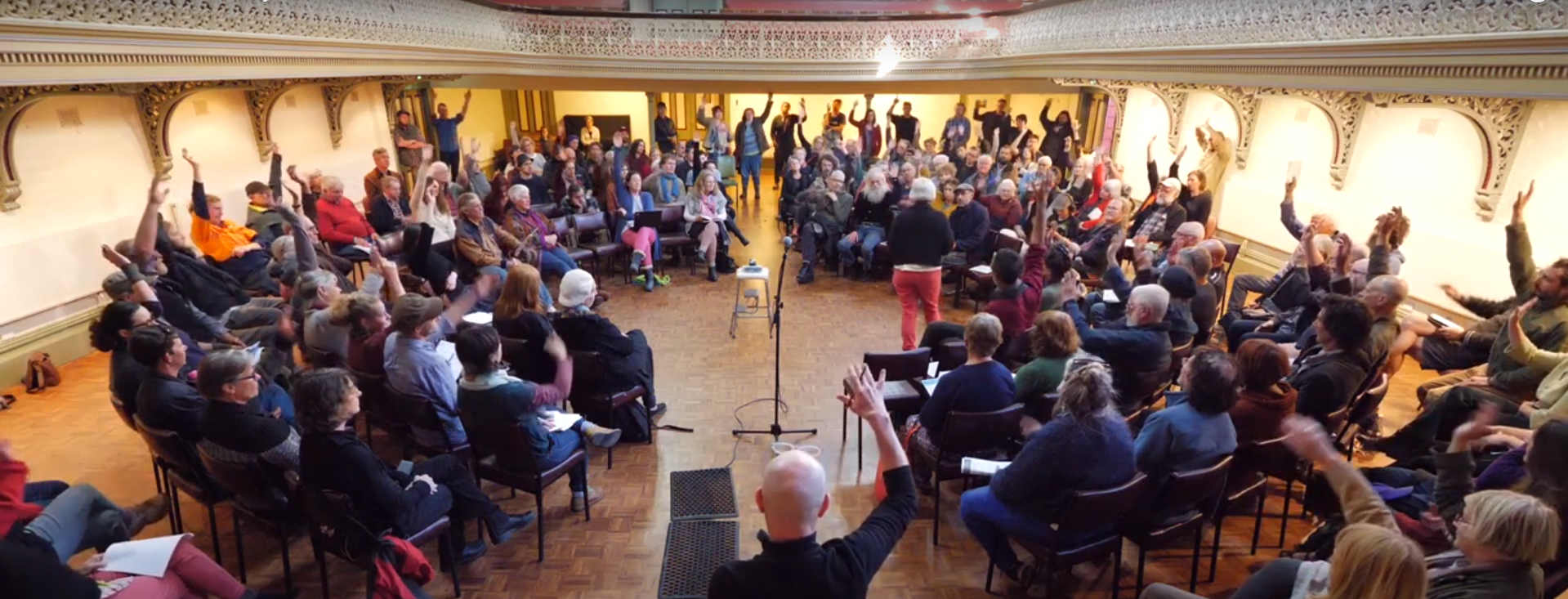
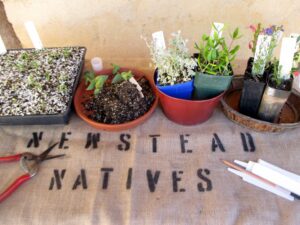

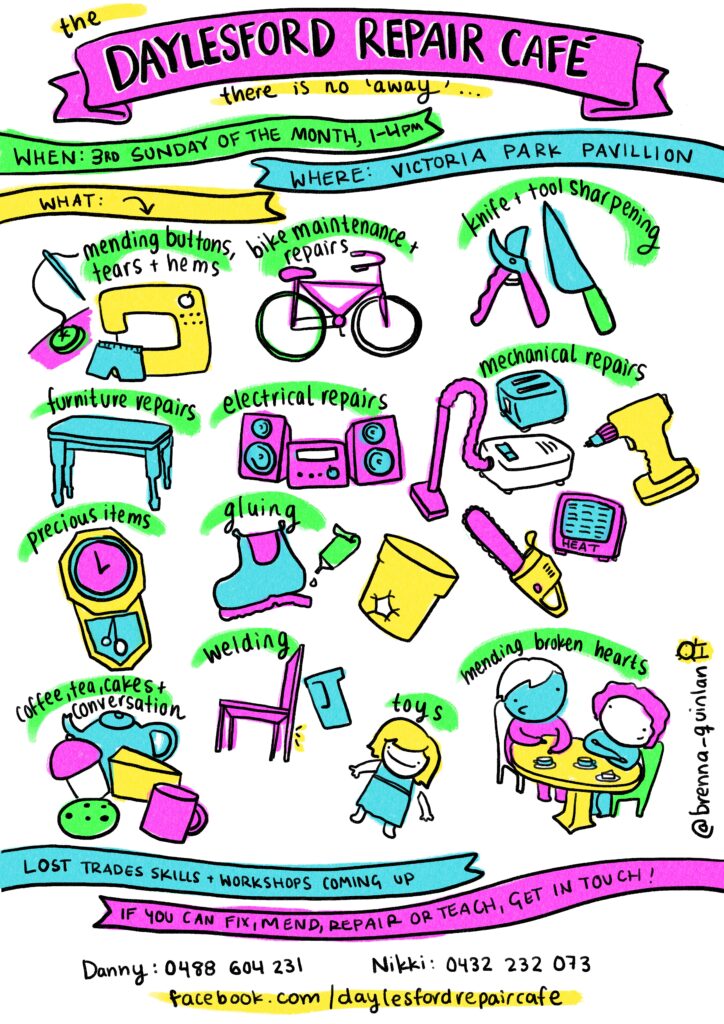
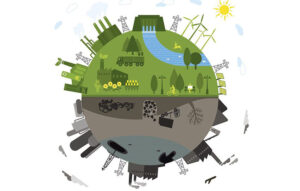

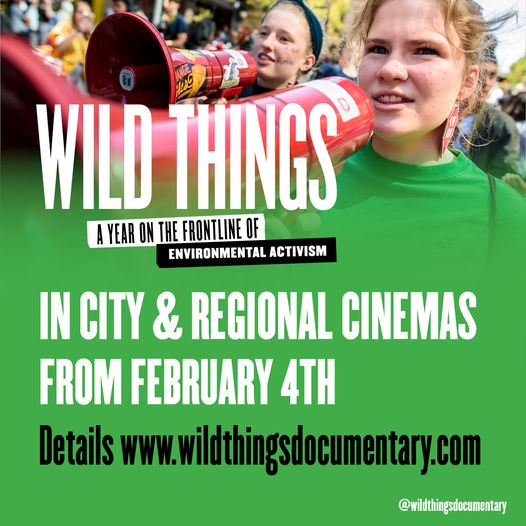
 The Grow Great Fruit orchard in Harcourt, which Ant has been looking after for nearly 4 years, with all it’s associated infrastructure and machinery and the business, is being made available.
The Grow Great Fruit orchard in Harcourt, which Ant has been looking after for nearly 4 years, with all it’s associated infrastructure and machinery and the business, is being made available.
